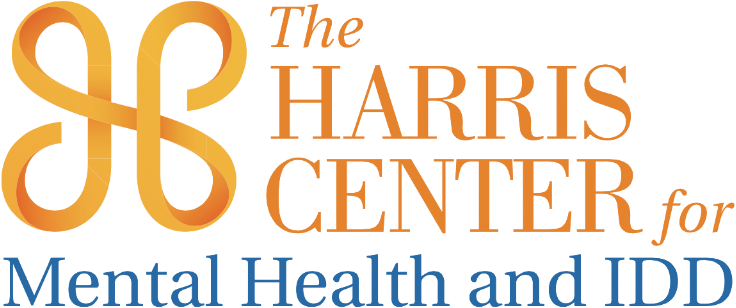
National Homelessness Awareness Month:
Navigating the Complex Relationship Between Homelessness and Mental Health
The intersection of homelessness and mental health is a crossroads many face daily. During National Homelessness Awareness Month, as with every month of the year, The Harris Center for Mental Health & IDD is dedicated to confronting this stark reality head-on and finding ways to contribute to solutions.
It’s a sad truth that a significant number of individuals in our community find themselves without a stable place to call home – more than 3,000 Houstonians each year. The challenges of everyday life can be daunting, especially when coupled with the weight of mental health issues. These individuals deserve our support in their times of need.
The relationship between homelessness and mental health is intricate and complex. Individuals might grapple with issues such as depression, anxiety, substance abuse and other mental health conditions, which can contribute to their housing instability. The lack of a stable home can, in turn, exacerbate these mental health issues. It’s estimated that about 90% of the homeless clients receiving help at The Harris Center are living with a mental health condition.
Addressing this crisis requires a nuanced understanding of these challenges, and a commitment to providing the tailored support and resources that these individuals need. The Harris Center is on a mission to provide those facing homelessness with the mental health support and resources they need through several of its key programs.
THE PATH PROGRAM
The PATH (Projects for Assistance in Transition from Homelessness) Program at The Harris Center is designed for those grappling with homelessness and mental health issues, giving them access to crucial services that can help them stabilize.
Our team, full of dedicated mental health professionals, is passionate about creating a safe and supportive network. We believe in action, care, and making a real difference in the lives of those in our community. And this November, we are more committed than ever to raising awareness and working towards solutions for homelessness and associated mental health issues.
The PATH Program is comprised of a robust team of psychiatrists, nurses, mental health counselors, care coordinators for case management, substance use counselors, peer navigators, and psych techs, ensuring that every aspect of a client’s well-being is considered and cared for. This multidisciplinary approach is crucial, as it facilitates a successful and sustainable transition back into society, empowering clients to regain control of their lives.
For those experiencing homelessness, the PATH Program plays a pivotal role in breaking the cycle of instability. The program not only helps in securing resources, government benefits, and housing placements but also provides essential psychiatric medications and support. By doing so, it directly addresses the complex interplay between homelessness and mental health, equipping individuals with the tools and support they need to overcome their challenges and rebuild their lives.
CHRONIC CONSUMER ASSISTANCE PROGRAM (CCAP)
In the heart of our bustling business districts and downtown areas, many chronically ill individuals often go unnoticed, posing unforeseen challenges for businesses and their daily operations. Our specialized team, partnered with the Chronic Consumer Assistance program (CCAP), is dedicated to addressing this often-overlooked concern.
With the collaboration of trained clinicians, we reach out to these individuals, not living in larger groups but often alone, ensuring they receive the immediate care they need. By coordinating with local law enforcement, we ensure their rapid transition from the streets, emphasizing both their well-being and the health of the community.
Understanding the importance of a stable living environment, we've initiated partnerships at the Villas at East Wood apartment complex. Here, individuals, whether on housing vouchers or tax credits, receive the support they need to maintain their homes. Beyond just housing, they have full access to comprehensive mental health services right at their doorstep. Our collaborative approach with housing partners is testament to our commitment to stabilize and integrate these individuals into the community seamlessly.
The challenge of homelessness doesn't end there. Many find refuge in makeshift camps, often cut off from essential services. Our Navigation Center Support Team and Behavioral Center Team are actively bridging this gap. These teams have been working tirelessly, especially since the inception of the Navigation Center over the past year or two. Far from just a shelter, the Center stands as a pivotal hub. It’s a nexus where healthcare workers and counselors converge to offer their expertise. It provides those in need with a platform for screenings and offers a transition path to apartments when they're ready. Furthermore, our collaboration with the Career and Recovery program offers the invaluable opportunity of employment, ensuring a holistic approach to rehabilitation.
OTHER PROGRAMS ADDRESSING HOMELESSNESS
Among its programs, The Harris Center also offers a range of services designed to support individuals facing homelessness and mental health challenges.
Here’s an overview of some of the key programs:
• Crisis Residential Unit (CRU): A short-term residential facility providing intensive mental health services.
• Hospital to Home: A voluntary program for adults that offers residential, rehabilitation services. It is designed to facilitate a smooth transition from hospital care to stable housing.
• Independent Living: Services aimed at helping individuals develop the skills necessary for independent living.
• Step Down State Hospital Transition Program: A program assisting individuals transitioning from hospitals to community-based settings.
The Harris Center’s overarching vision is not just to offer immediate help but to steer individuals towards a future in which they can experience happiness. Through each of our programs and partnerships, we strive to enhance both the environmental and psychiatric stability of our clients, ultimately uplifting their quality of life. Building trust is not an end, but a means to our ultimate goal – to help each individual we work with lead a genuinely happy life.
For questions about our services, contact The Harris Center Patient Access Line: 713-970-7000. You can also visit our webpage for Housing and Homelessness to learn more.




